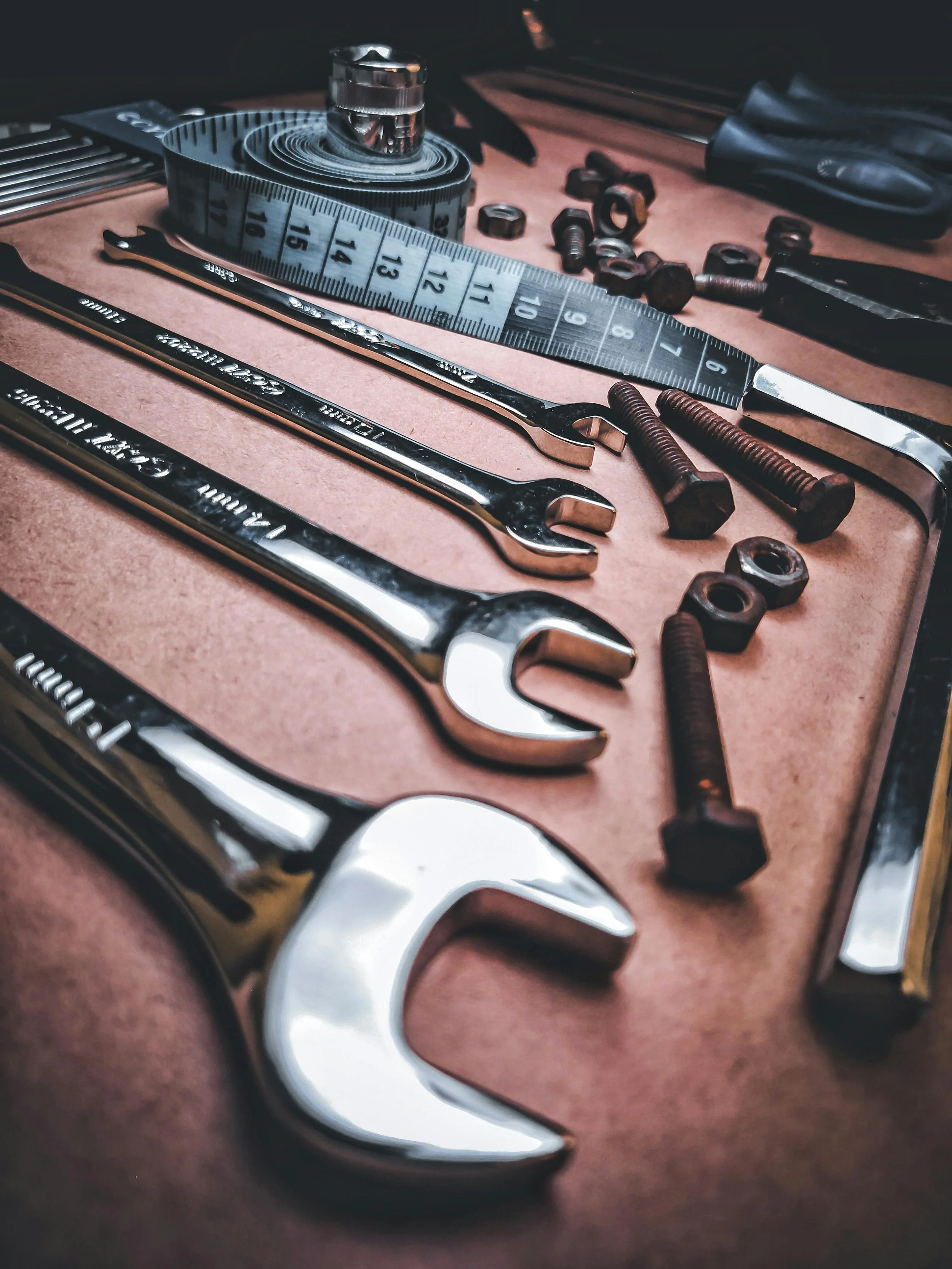You paid for your appliances. Shouldn’t you be able to fix them?
It’s frustrating when an appliance you rely on starts to fail — especially when the fix turns out to be simple, but the manufacturer won’t let anyone but their technicians handle it. Maybe you’ve been told parts are “unavailable,” or that using a local repair company might void your warranty. It’s enough to make anyone wonder: who actually owns this appliance — you or the manufacturer?
That question lies at the heart of the Right to Repair movement. It’s about more than fixing a fridge or a washing machine — it’s about your right, as a homeowner, to decide what happens to the things you’ve paid for.
What is the Right to Repair?
The “right to repair” refers to consumers’ and independent repair providers’ ability to access the parts, tools, documentation, firmware and other resources needed to diagnose, maintain, or repair a product that they own. According to The Repair Association, the movement is grounded in the principle: “You bought it, you own it. Period.”In practical terms, a right-to-repair regime would require manufacturers to make available, on fair terms, the same service manuals, replacement parts, diagnostic tools and software updates that their authorized repair networks use.
Historically the issue has grown because as more home appliances and other products incorporate embedded software, sensors, proprietary tool-locks and “paired” parts, consumers and independent shops increasingly find themselves locked out of repairs unless they go through the manufacturer’s authorized channel.
For homeowners and appliance repair companies alike, the right to repair means that when a refrigerator, washer, dryer or other household appliance fails, the owner (or a trusted local technician) should have the choice to repair it — not be compelled to replace it or send it to a factory-only repair facility.
Why is it important?
The right to repair is important for a number of intersecting reasons: economic, environmental, consumer-rights and market-competition.
From the consumer’s side, restricting access to repair tools and parts can raise costs, delay fixes, reduce choice and push replacement instead of repair. As the Federal Trade Commission concluded, “lack of repair options increases costs to consumers.”
From the environmental side, enabling repair helps extend product lifespans, reduce waste and mitigate the resource and energy consumption involved in manufacturing and disposal.
From the market side, when only manufacturer-authorized repair channels exist, independent and local repair businesses are locked out, reducing competition and consumer choice. As one explainer puts it: “Repair restrictions have squeezed independent repair shops, which are overwhelmingly small, local businesses.”
And finally, from the consumer-rights side, when you buy a product you expect to own it, use it, maintain it and repair it — not be forced into “licensing” your product or being captive to a manufacturer’s repair monopoly. Taken together, these factors make the right to repair a foundational issue for homeowners who rely on appliances, for local repair businesses that serve homeowners, and for a fair, sustainable marketplace.
Why do we want it?
We want the right to repair for several key reasons.
First, because it restores choice and control: homeowners gain the ability to have their appliance fixed (or make themselves the choice) rather than being forced into expensive replacements or manufacturer-only service. This means fewer surprises, less frustration and potentially lower lifetime costs for appliances.
Second, because it supports competition: when independent repair shops – especially local ones – have access to the same parts, tools and information as authorized channels, they can offer competitive pricing, faster service, and more convenience. According to Congress’s record, “Independent repair shops frequently offer lower prices than larger manufacturers.”
Third, because it aligns with sustainability: enabling repair keeps appliances in service longer, reduces e-waste (and the associated environmental damage), and makes the most of the resources already invested in the product.
Finally, because it strengthens community-based businesses: small, local appliance repair companies are plugged into their neighborhoods, know homeowners by name, provide personal service and invest locally. Giving them a level playing field helps local economies — not just big manufacturer service-networks.
Why does this matter to you, as a homeowner?
For homeowners served by a local company like Appliance Rescue Service, the right to repair means more reliable, affordable, timely service when an appliance breaks. When independent local repair shops have unfettered access to OEM parts, tools, repair documentation and software diagnostics, they can offer faster turnaround, lower fees and more flexibility (for example, offering used or aftermarket parts when appropriate).
In practical effect: if a homeowner’s refrigerator starts malfunctioning, a local technician can diagnose the problem onsite, order the correct part quickly (rather than waiting several days for “authorized dealer only” parts), and complete the repair — avoiding a full replacement or extended downtime. That saves the homeowner money, keeps their household running smoothly, and supports local businesses
.
From the business side, when repair restrictions are removed, local repair shops don’t have to steer homeowners toward costly manufacturer-only service or replacement. They can compete, maintain a margin, and grow, which means they can reinvest in training, tools, stock parts, and rapid response, which benefits homeowners in turn. As noted in policy discussions: repair restrictions “negatively impact small firms by raising costs and limiting repair options for small businesses that depend on machinery.” While that quote was directed at agriculture, the same logic applies to appliance repair.
When homeowners know their local repair shop is equipped, empowered and fairly able to service their appliance, it builds trust, promotes home appliance longevity, and spares costly “replace-because-repair isn’t affordable” outcomes.
What does it mean if we as Americans don’t have the option for right to repair?
If Americans lose or never secure the right to repair, the practical consequences ripple through homeowners, repair businesses, communities and the economy. For homeowners: repair costs will likely stay higher, service options fewer, downtime longer, and replacement more common as the default — which means more money out of pocket, more waste, less flexibility.
For local repair shops: restricted access means fewer tools and parts, higher overhead, dependence on manufacturer channels, less ability to serve their community, higher prices, fewer jobs, and weaker local economies. For instance, independent shops may have to charge more or wait longer for parts, decreasing competitiveness.
For communities and the environment, more appliances get discarded instead of repaired, increasing waste streams, piling up in landfills, consuming more manufacturing resources, and generating more emissions. Homeowners may feel powerless, and repair becomes unaffordable for many — disproportionately those in rural or low-income communities, where local repair shops often fill the gap. For the broader market, a repair monopoly by manufacturers means less competition, less innovation in repair service business models, fewer choices for consumers, and fewer incentives for appliances to be made repair-friendly. Simply put: lack of the right to repair stifles choice, increases cost, rewards replacement over repair and undermines local service capacity.
If we don’t act, homeowners may increasingly be forced into either buying new or paying high authorized‐dealer rates, local repair shops may shrink or disappear, and our built-in household infrastructure (appliances, etc.) will become more disposable and less resilient.
As homeowners, we’re not just customers — we’re caretakers of the homes we’ve built and the things that keep them running. The Right to Repair is one small part of protecting that independence. When we lose the freedom to fix what we own, we lose control over cost, convenience, and even sustainability in our own homes.
At Appliance Rescue Service, we believe every homeowner deserves honest, affordable repair options — not locked systems and forced replacements. Our technicians take pride in helping Dallas-area families extend the life of their appliances through reliable, local service.


